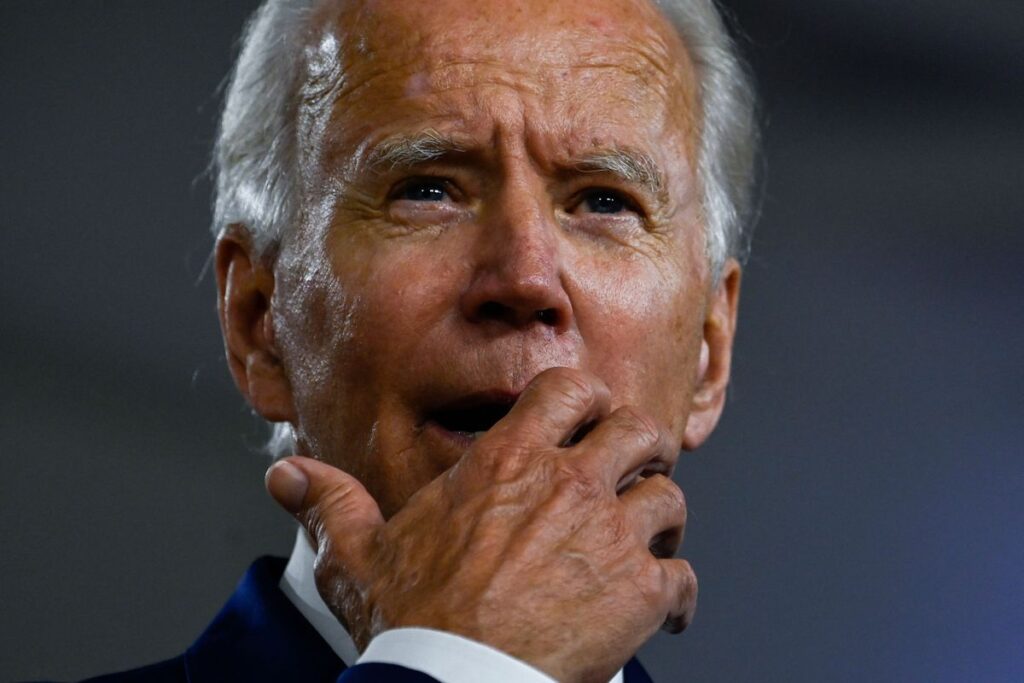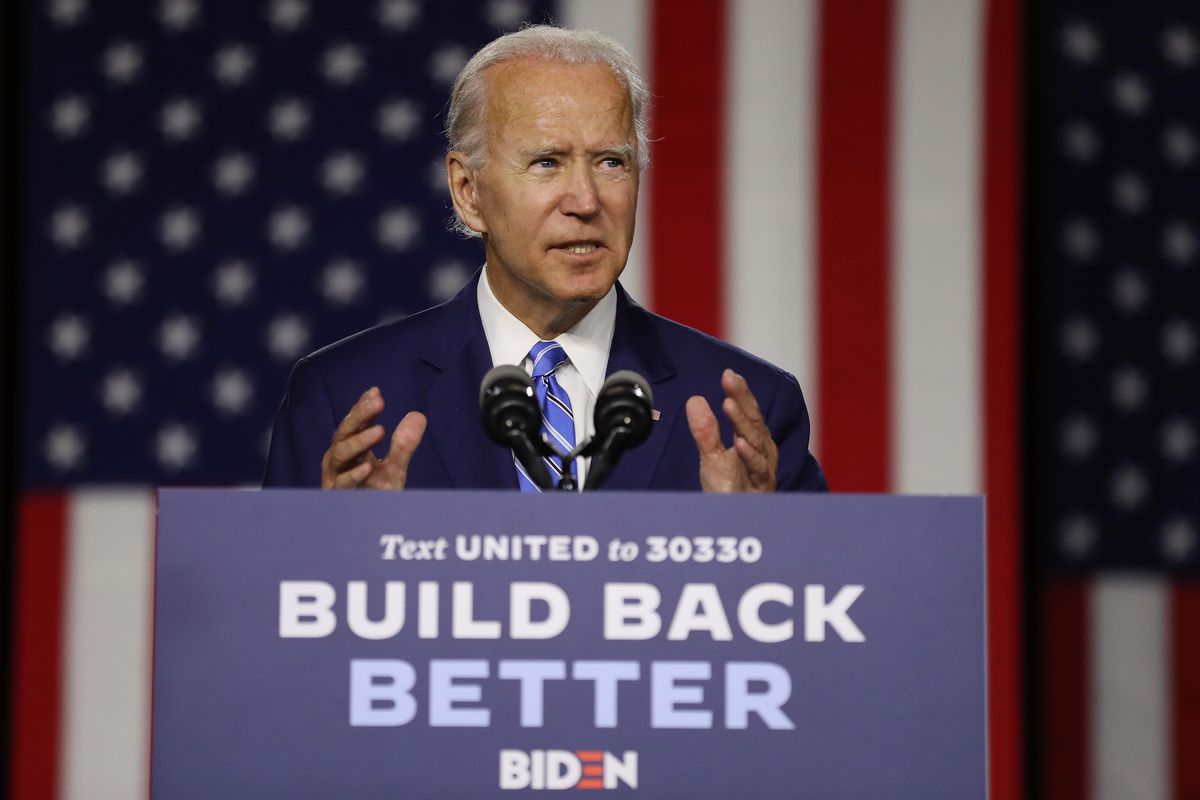
By I.S., contributing writer
Feature photo from Getty Images
Welcome back, Bearcats, to the second installment of Purple Politics.
I’m sure by now you’ve read, seen, or scrolled past something in regard to the presidential race of 2020. You’ve probably noticed that we, the people, are once again devastated by the lack of leadership and preeminence the pool of candidates is offering.
This year, the Republican candidate is Donald Trump and his opposition, Joe Biden (Obama’s VP). The other notable candidate is Jo Jorgenson, a Libertarian. Despite coming out to be a well-rounded, fantastically moderate and sensible candidate, Jorgenson may not be able to muster enough mojo to ultimately defeat the Donkey and Elephant this time around.
In the first installment of this column, we took a brief dip into the deep end, questioning if the United States can actually call itself a multi-party system, or if we are stuck in a rut of bi-partisan beguile. Can a third-party candidate stand a chance amongst two “popular” red and blue candidates? No matter how spectacular the woman, I’ve unfortunately reached the verdict that it’s nearly impossible for Jorgenson to come close to winning the majority vote, especially against two incredibly radically skewed opponents with such hefty followings.
I’m joined by several Bearcats in this disheartening theory, who were more than willing to share their opinions on the matter.
An International Relations Major (who preferred to remain anonymous) said, “I wish I could say that yes, all parties have at least a chance at winning the election, but no.”
The student continued to explain that they feel as though “our government was built for a two-party system, so a third-party candidate doesn’t really stand a chance at all, especially with the electoral college still in place.”
If we don’t approve of Trump, and Jorgenson doesn’t statistically have a chance at an actual victory, is Joe Biden an ideal replacement? Should we be “settling” for a less-than-satisfactory candidate? Let’s hear what some of our fellow Bearcats have to say on the subject.
Note: for the sake of establishing a safe arena for students to voice their political views, unless otherwise specified by the contributors, all quotes and interviewees will remain anonymous from this point on in the article. Just because I feel comfortable sharing my political views does not, under any circumstance, mean that anyone else should feel pressured to, but conversation is important.
“See, the problem here is that Joe Biden has spent the last 47 years as an actor within the political sphere, but he has yet to prove action on a single one of his current campaign promises,” a senior Exercise Science & Sports Performance major said. “If he really intended to make drastic changes, wouldn’t he have done it already?”
I love that this student brought this up in our virtual interview. I agree. But why aren’t we asking this question looking at literally every single representative present within the three branches of our dwindling democracy? Obviously, something isn’t working if it’s taking this long to make changes that seem so obviously needed (including Donald Trump).
We need to educate ourselves about the legitimacy of the candidates’ claims. What is stopping a president, our commander-in-chief, arguably the most powerful man in the world, from holding up his promises once she or he is sworn into their term? Besides maybe an angry Congress, nothing.
This is why it is extremely important to take a look into the past career-experiences of our political leaders before truly forming our opinions on them.
The exercise science student referenced the controversial 1994 crime law that Biden assisted in writing during President Bill Clinton’s term
“As a senator, Joe Biden helped create many of the racist laws upon which our justice system was built,” the student said. “Harris [Kamala Harris, democratic nominee for 2021 vice president] and Biden both contributed to mass incarceration and unjustified, disproportionate increases in lock-ups, physical prison cells and police aggression/brutality.”
This, friends, is where I feel sick when calling myself a Democrat. How can we call for justice and change when our best foot forward is another white, elitist male that gives the green-light to state and federal prosecutors to impose tougher prison sentences at the federal level? He boasted during an earlier campaign speech that the liberal wing of the democratic party was now for “60 new death penalties,” “70 enhanced penalties,” “100,000 cops” and “125,000 new state prison cells.” Yes, this was a while ago, but I continue to see him endorse the decisioning within his current campaigning.
In correspondence with the current BLM movement, this type of background on a candidate should wave too many red-flags to even be considered as an informal possibility for endorsement. He definitely should not be leading the polls on the formal ballot.
But did the Democrats necessarily have the option? It is commonly believed that Biden was put forth in hopes of avoiding a “democratic demagogue” like Bernie was assumed to be. In other words, trying to avoid the democratic version of Donald Trump in office for the next four (possibly eight) years.
A sophomore Political Science major spoke with me about her concerns regarding the feminist agenda, and how a vote for Donald Trump means a vote against women.
“I find it difficult to support either men regardless of their politics due to their sexual assault and accusation history,” she said. “I feel like voting would just be choosing the lesser of two evils and that picking either man would result in someone misrepresenting what I believe this country stands for.”
But when asked if she was prepared to settle for that lesser evil in order to keep the latter out of office, she had mixed feelings: “I think settling is never the answer, but also having Trump for another four years would suck. However, it kind of hurts my heart to think that if we do end up electing Biden, in four years he’ll end up as the democratic candidate again, which is just as bad as having Trump for an additional term.”
I spoke next with a sophomore Occupational Therapy major Shoshana Scanlon, who elaborated on this human rights issue a bit more with me. “Joe Biden satisfies the majority of my personal preferences as a voter,” she began, carefully adding that “there are always going to be things that don’t one-hundred percent align with our own beliefs—it’s about choosing what’s best for this country, and right now, that is Joe Biden.”
When I prompted her to see where her vote may fall this November, she responded confidently—“this election, I don’t see anyone from a third-party winning. Quite honestly, I believe that we shouldn’t see a vote for Joe Biden as ‘settling’, at all. A vote for Joe Biden is a vote against Trump, and that’s what we should be focusing on.”
Lastly, I asked all my interviewees today if there was a particular instance or occurrence that stuck out to them in the past/present of the candidate, and if that was going to sway their vote to one side or another. In regard to this question, I found Shoshana’s comment the most compelling and straightforward.
“That’s the understatement of the year,” she began. “Trump is an undoubtable racist, a continuing misogynistic, narcissistic man who does despicable things that are now being brushed off in this country as acceptable.”

So, should we “settle” for Biden? Is it really “settling” at all?
Although it may be a personal preference, in my own opinion I am beyond ready for a change. Donald Trump, you may have the right to a presumption of innocence, but until all things in regard to the Epstein Scandal are put to rest, the racist, belittling behavior is ceased and you delete your ridiculous social media accounts, you should not be allowed back into the White House.
Why are we not holding canonical figures like the president (police, politicians, etc.) to a higher level of expectations? It bewilders me how much we are allowing people to get away with in this date and time.
Let’s talk more soon. Until then, prepare yourself for some straight-forward, hardcore public policy opinions—they are coming to you next.